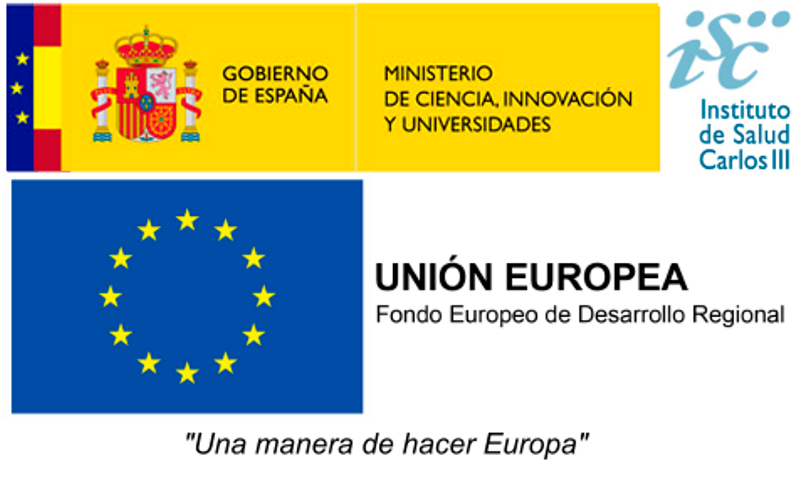NANOpheles
Development of nanovectors for the targeted delivery in Anopheles mosquitoes of agents blocking transmission of Plasmodium parasites

- Duration
- 01/03/2018 - 28/02/2021
- Coordinator
- Xavier Fernàndez-Busquets
- Funded by
- ERA-NET Cofund EURONANOMED III / Instituto de Salud Carlos III — Project Code: AC17/00111
Whereas nanomedical approaches to cure diseases are prevalent in the developed world, there is an astonishing lack of nanomedicines to treat the main causes of death in the impoverished areas of the planet: infectious diseases, among which malaria is prominent.
The unmet medical and patient need of malaria eradication will not be achieved unless the targeted delivery of new drugs is vastly improved. Encapsulation of drugs in targeted nanovectors is a rapidly growing area with a clear applicability to infectious disease treatment, and pharmaceutical nanotechnology has been identified as a potentially essential tool in the future fight against malaria. Polymers offer virtually unlimited diversity in chemistry, dimensions and topology, which renders them a class of materials that is particularly suitable for applications in nanoscale drug delivery strategies.
Objectives
The objective of NANOpheles is to design polymeric nanovectors for the delivery of antimalarial agents to Plasmodium stages in the mosquito, and to characterise the efficacy of nanovectors and antimalarial agents to reduce mosquito infectiousness.
This objective will be achieved through:
- synthesis of nanocarriers capable of encapsulating antimalarials (currently used drugs and future antimicrobial peptides, antibodies, and dsRNA) and of preventing their degradation in storage conditions
- engineering of targeted nanovectors capable of delivering their antimalarial contents to Plasmodium stages in the Anopheles mosquito
- evaluation of the effect of selected nanovectors (loaded with antimalarial agents) on the mosquito stages of Plasmodium and their transmission capacity in a murine model of malaria
NANOpheles unites groups which are leading laboratories in nanoparticle synthesis, targeted drug delivery to Plasmodium-infected cells, molecular and cell biology of malaria, mouse models and mosquito vectors of malaria, and clinical aspects of malaria.
Total funding
977,440.00 €
ERA-NET Cofund EURONANOMED III. EUROPEAN INNOVATIVE RESEARCH & TECHNOLOGICAL DEVELOPMENT PROJECTS IN NANOMEDICINE

Our Team
Coordinator
-
Xavier Fernàndez Busquets
ISGlobal team
-
Krijn Petrus Paaijmans
-
 Luis Izquierdo Lázaro Associate Research Professor
Luis Izquierdo Lázaro Associate Research Professor -
Elisabet Martí Predoctoral Fellow
Other projects
See Past ProjectsNHEPACHA
New Tools for the Diagnosis and Evaluation of Chagas Disease
RTS,S Vaccine Immunology Study
Study of immune correlates of protection against malaria after vaccination with RTS,S/AS01E: a comprehensive immunological arm of a Phase III double-blind, randomized, controlled multi-center trial
Euroleish.net
Control of Leishmaniasis. From bench to bedside and community
GREPIMER
Grup de recerca en patología importada i malaties emergents i re-emergents
TESEO
New chemotherapy regimens and biomarkers for Chagas Disease
ASINTMAL
Unravelling Disease Tolerance and Host Resistance in Afebrile 'P. falciparum' Infections: a Prospective Study in Mozambican Adults
ADAM
Malaria mass and focal drug administration to advance malaria elimination in Mozambique: accelerating programmatic implementation and policy translation
Science4Pandemics
Citizens engagement digital platform for collective intelligence in pandemics
HIDDENVIVAX
Novel organ-on-a-chip technology to study extracellular vesicles-mediated cryptic infections in Plasmodium vivax malaria
Subclinical Infections in Children and Long Term Health Effects
Infection acquisition in early life and health outcomes in childhood - MARATO TV3
Herramienta innovadora de detección de enfermedades y vacunación a población inmigrante en riesgo en España
Project Code: PI21/00651
Impacto de las coinfecciones en el balance de respuestas de anticuerpos y linfocitos T helper a antígenos diana de inmunidad natural y vacunal frente a patógenos humanos prominentes
Project Code: PI20/00866
EpiGen
Building Scalable Pathogen Genomic Epidemiology in Ethiopia
MalTransc
Transcriptional regulation of adaptation and developmental decisions in malaria parasites: from epigenetic variation to directed transcriptional responses
BOHEMIA
Broad One Health Endectocide-based Malaria Intervention in Africa
RESPONSE
Mechanisms of the transcriptional responses to changes in the environment in the malaria parasite Plasmodium falciparum
VivaxEVTalk
Extracellular Vesicles as Intercellular Communicators and Biomarkers of Cryptic Erythrocytic Infections in Plasmodium vivax malaria
VaMonoS
Unravelling the heterogoneity and function of monocytes in vaccination and immunity to malaria
CLIMSOCTRYPBOL
Insight on climate and social participatory research for integral management of vectorborne zoonosis caused by Trypanosoma cruzi and Leishmania spp. in the Bolivian Gran Chaco.
SexMal
Social affairs and sex in P. falciparum: implications for malaria elimination
MENA Migrant Health
Transforming data collection and surveillance to drive migrant health research, care and policy
MESA
Sharing knowledge and catalyzing research towards a malaria-free world
SMART
Identifying Severe Malaria with a new Aptamer-based Rapid diagnostic Test
GlycoTargets
New antimalarial therapies targeting the glycosylation pathways of ‘Plasmodium falciparum’
GenMoz
P. falciparum genomic intelligence in Mozambique




